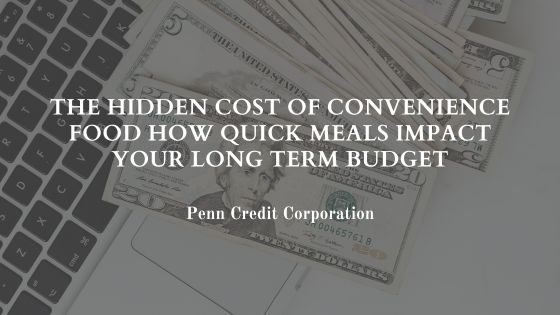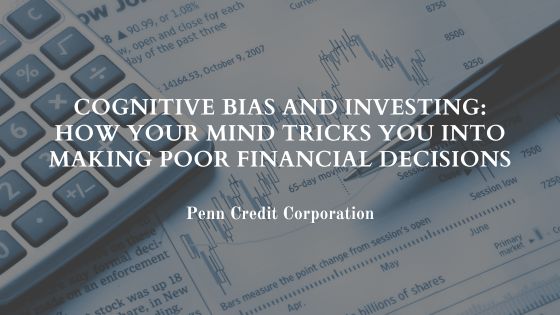
by Penn Credit Corporation | Dec 17, 2025 | Accounts Receivable Management, Blog, Penn Credit Corporation
In today’s fast-paced world, convenience food has become a staple in many households. From ready-made meals to meal delivery services, the appeal of saving time in the kitchen is undeniable. While these options can simplify busy schedules, they come with hidden...

by Penn Credit Corporation | Dec 17, 2025 | Accounts Receivable Management, Blog, Penn Credit Corporation
Saving money is one of the most essential pillars of financial health, yet many people struggle to do it consistently. The challenge is not always a lack of income but rather the behavioral patterns that influence how we spend and prioritize money. Psychology and...

by Penn Credit Corporation | Oct 22, 2025 | Accounts Receivable Management, Blog, Penn Credit Corporation
Investing is often described as a numbers game, but in reality, it is just as much a psychological one. While data and analysis guide financial decisions, the human brain has its own set of biases that can distort judgment. These mental shortcuts, known as cognitive...

by Penn Credit Corporation | Oct 22, 2025 | Accounts Receivable Management, Blog, Penn Credit Corporation
Unexpected expenses often feel like they come out of nowhere, but many of them are not truly surprises at all. Birthdays, car repairs, holiday shopping, and annual insurance premiums may catch us off guard if we do not prepare, yet they are predictable parts of life....

by Penn Credit Corporation | Jul 16, 2025 | Accounts Receivable Management, Blog, Penn Credit Corporation
If your finances feel scattered or you are not sure where your money is going each month, it might be time for a personal finance audit. Just like businesses review their financial health regularly, individuals can benefit from taking a close look at their own money...

by Penn Credit Corporation | Jul 16, 2025 | Accounts Receivable Management, Blog, Penn Credit Corporation
When most people hear the term financial independence, they immediately picture retirement. For decades, financial freedom was equated with leaving the workforce at age sixty-five and living off savings. But the modern meaning of financial independence has evolved....







